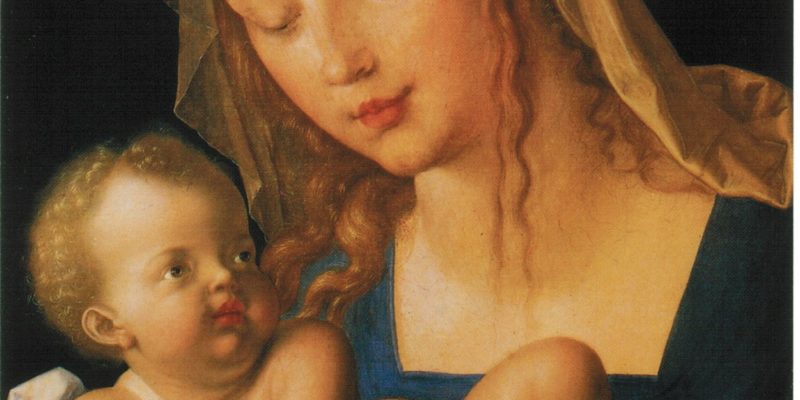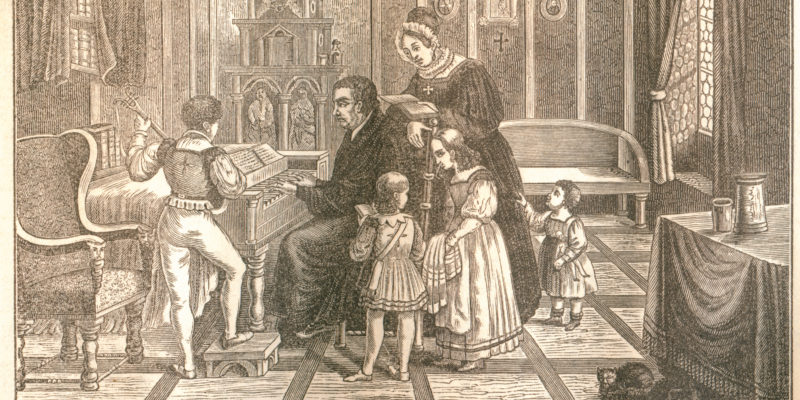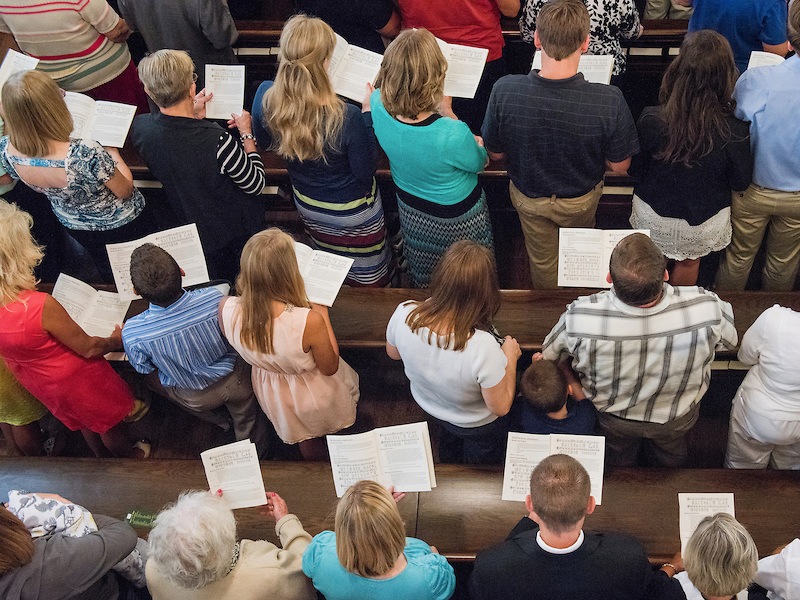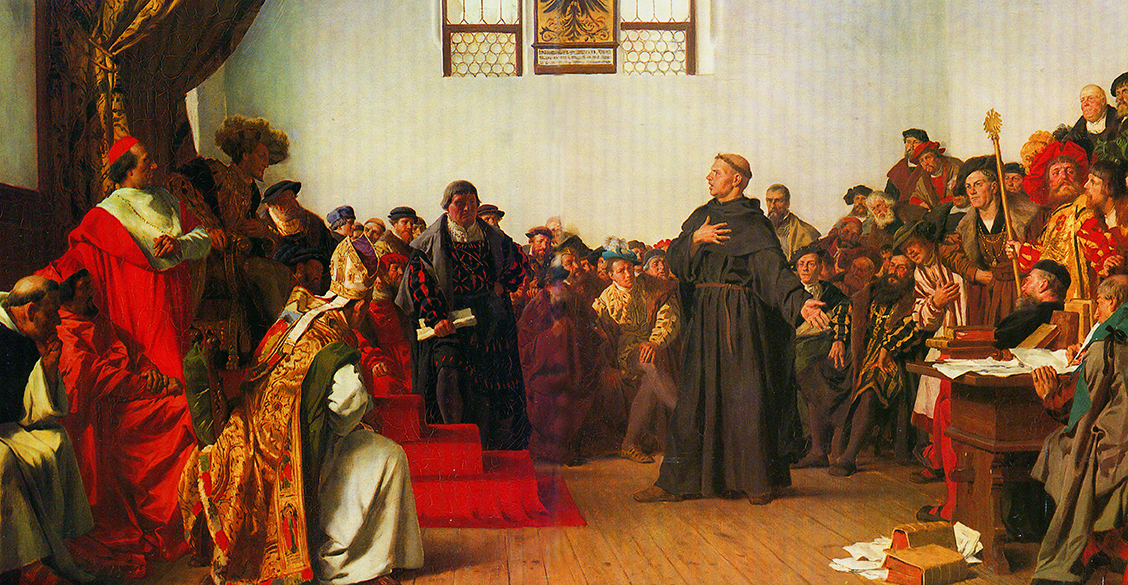At first glance, Dürer’s Virgin and Child With Half a Pear may simply look like a lovely Renaissance mother holding her baby, but so much more is being visualized as the artist gives flesh, blood, and bone to the Son of God.


At first glance, Dürer’s Virgin and Child With Half a Pear may simply look like a lovely Renaissance mother holding her baby, but so much more is being visualized as the artist gives flesh, blood, and bone to the Son of God.

From 1531 to 1535 Luther delivered many of these sermons, what are known as his Hauspostille (house postils). These were written for fathers to use as devotional material in their households, as well as for pastors to use for aid in sermon preparation. Just as Luther expected the head of the household to teach the Catechism to his children, so he desired them to have devotions with them, a practice that Luther was eager to do himself.

Although Luther was in hiding during this period, it did not mean that he entirely stopped his scholarly and reforming activity. Indeed, the Reformer busied himself with a number of important matters.

Though many hymns have been attributed to Ambrose, “Savior of the Nations, Come” is one of a few hymns that is evidentially attributed to Ambrose. Martin Luther, also writing during a period of great adversity, provided a literal translation of this text into German from which many English translations have since been produced. Fred Precht rightly says of the hymn: “In the history of hymnody this hymn is the Advent hymn par excellence.”

Certain holy things mark the communion of saints. How many of these holy things there are can vary in the reformers’ discussion. Far from being some nebulous concept and invisible reality with little or no definite connection to the solid world of human experience, the Lutheran reformers pointed to an identifiable, locatable church, which was Christ’s own church as his words rattled ears, as his gifts met and hallowed embodied sinners, and as those so touched came to speak and sing of their incarnate Lord, and to suffer alongside him.

The Litany was in use during Luther’s early years of reform, though he desired it to be sung in the Mass and the daily offices of the congregations.

When the attacks of the evil one assail us and in times of thanksgiving, we can trust in the One who is faithful and has promised to be with us always and rejoice with Luther that “Our victory has been won; the Kingdom ours remaineth.”

An interactive timeline of before, during, and after the Reformation that was, is, and always will be All About Jesus.

Although Luther had initially believed that his condemnation at Worms was the end of his life and Reformation, it proved ultimately to be merely the end of the beginning.

Thanks to the combined impact of the printing press and the urgency of the Reformers to translate the Bible into many languages, generations of people have been able to receive the gifts of the Gospel through the written word in their own language.